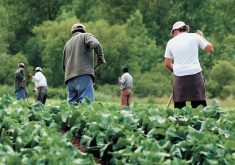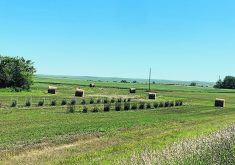Members of Parliament sitting on the committee dealing with agricultural issues continue to hear concerns over the federal government’s response to COVID-19.
During a May 27 meeting, members of the Canadian Mushrooms Grower’s Association raised “grave concerns” over the support they have received.
Chief executive officer Ryan Koeslag said additional measures put in place by Ottawa are not reaching mushroom growers.
He cited the $50 million in funding made available to help support temporary foreign workers. The federal government offered $1,500 per temporary foreign worker to help cover costs associated with putting measures in place to lower the risk of the virus among the employees.
Read Also

New coal mine proposal met with old concerns
A smaller version of the previously rejected Grassy Mountain coal mine project in Crowsnest Pass is back on the table, and the Livingstone Landowners Group continues to voice concerns about the environmental risks.
“Not a penny has been received by our farms,” said Koeslag, telling MPs that workers on mushroom farms were already in Canada and are therefore ineligible to be used to qualify for the program, despite their employers still having to spend money on additional housing and other measures to maintain social distancing or other mitigation efforts.
Koeslag also explained how the federal government is unlikely to be buying food surpluses from mushroom growers because their production was not altered until week four of the pandemic, but the program is only available to manage oversupply beginning in May.
Other programs, such as a fund to help ensure personal protective equipment is in place, are prioritizing other sectors (namely meat processors) or have not yet been rolled out.
“We don’t care where our funds come from, but as of now nothing has been received and we are going to enter into a territory of too little, too late,” Koeslag said during his virtual testimony to the committee.
He said mushroom farmers are implementing costly measures to mitigate the virus spread out of their own pockets, at a collective cost of $250,000 per week among the association’s 52 members.
While exports to the United States have increased, Koeslag said that is unlikely to be long-lived.
He echoed complaints from other commodity groups that currently business risk management programs are ineffective.
The Saskatchewan Association of Rural Municipalities (SARM) filed a written submission to the committee outlining its members’ thoughts on the government’s response to the pandemic.
“Further immediate measures are required for many agricultural producers to address cash flow issues and continue their operations,” it said. “The federal initiatives announced to date are a good start, but we are very disappointed more wasn’t provided to ensure immediate food sustainability by providing direct support to those producing our food.”
It also called for a more affordable livestock price insurance program, saying it is “critical” for new producers lacking the equity needed to borrow enough money.
Canadian Mushroom Growers’ Association Ryan K Koeslag & Janet Krayden testify at Agriculture Committee. Ryan expl how mushroom farmers have had no program support but are struggling w tremendous losses and staggering #COVID19 costs.Janet expl how face masks are in short supply. pic.twitter.com/53bFPtNchC
— Canadian Mushroom Growers Association (@MushroomGrowers) May 28, 2020
They too called for changes to business risk management programs, particularly AgriStability, arguing it does not provide adequate support.
SARM called on the federal government to ensure the food supply chain remains operational.
“We would also encourage the Federal Government to focus efforts on developing federal health-based best practices specifically designed for the agriculture sector to use to prevent the spread of COVID-19 in their operations so they can continue to operate during a pandemic,” read the submission.
A need for broadband connectivity and the further exemptions from the carbon tax were also requested.
The committee will continue to hear from different sectors and commodity groups on May 29.


















